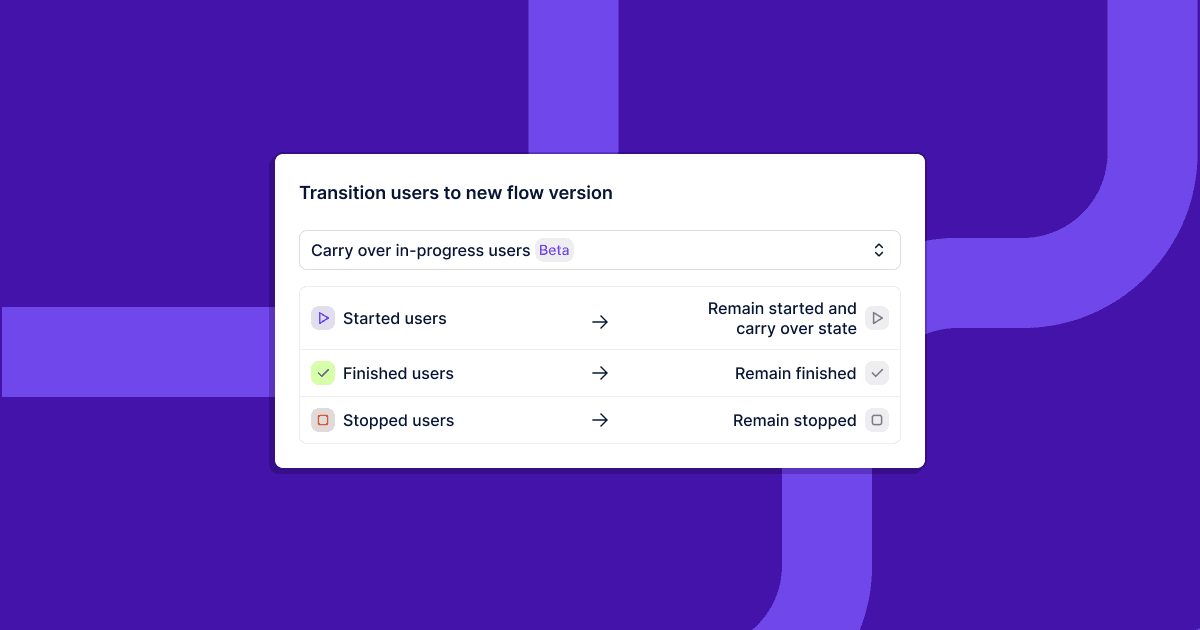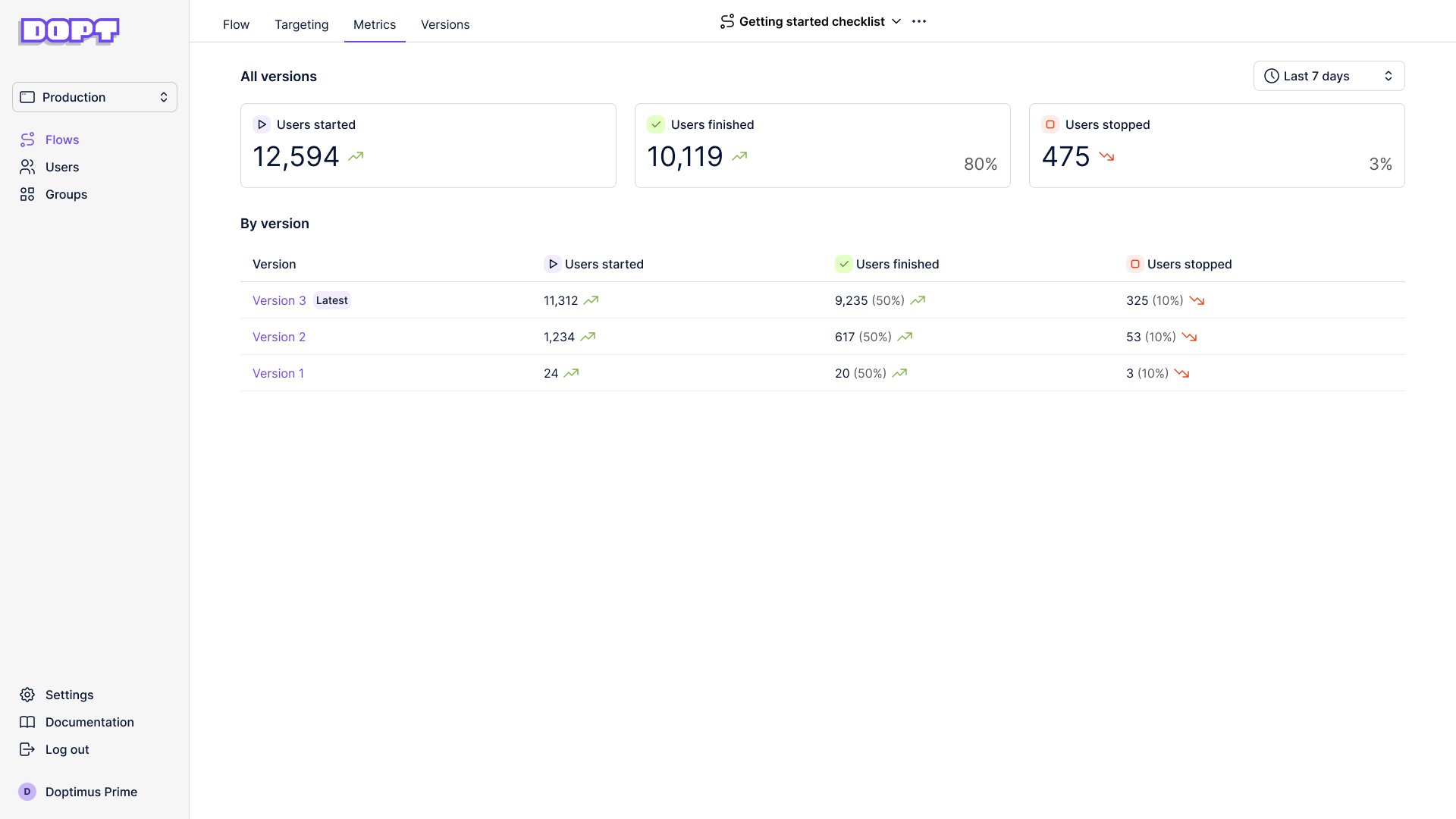
Carry over in-progress users beta
The new “Carry over in-progress users” transition enables you to seamlessly transition users and their state to a new flow version without having the user restart or exit the flow, so you can iterate on flows without users losing progress. For example, if you have 150 users on a checklist version who have completed different amounts of items, you could create a new checklist version with new items and transition the in-progress users to the new version. If a user's state can't be carried over due to incompatible changes like loops in the flow, those users will be restarted from the beginning of the flow. This feature is currently in beta — we’d love your feedback!
We also renamed the other transition methods and redesigned the transition modal to be much more clear.
Enhancements to built-in analytics
We’ve upgraded our in-app analytics capabilities to better encapsulate funnel analysis. Only users who have started in the specified period will be counted towards the finished and stopped statistics.

We’ve also included percentage markers and trend indicators to show how many users out of the ones that started the flow have finished or stopped and if that number has increased or decreased since the previous period.
Improvements to how we build our open source packages
Our open source packages previously produced build artifacts that were intended to be friendly to various build and module systems by using "type": "commonjs" in their package.json (the default and less modern configuration) and by using file extensions to delineate between module systems (e.g. mjs for ESM and cjs for CJS). This strategy caused issues for older build tools that do not support these file extensions.
We’ve moved all of our open source packages and their transitive "dependencies" to use @dopt/pkg-build, our newly created CLI for building packages in the most backward compatible way we can come up with.
This strategy shifts us to:
- Use
"type": "module"in ourpackage.json - Output files with
.jsextensions - Produce a
./cjsdirectory in the build output that contains a thinpackage.json, which configures"type": "commonjs"explicitly, conceptually overriding the"type": "module"configuration of the actual package.json.
Improvements to component types
We now export the component hook return type definition to make it easier to type the custom components you build on top of our component hooks. Here’s an example of using them to define props in a custom checklist:
import { type ChecklistItem } from '@dopt/react-checklist/hooks';
interface CustomChecklistItemProps { completed: ChecklistItem['completed']; title: ChecklistItem['title']; body: ChecklistItem['body'];}Other improvements
- Our new HTML rich text render enables you to use Dopt’s rich text fields in all non-React UIs you’re building. Read the docs →
- You can no longer reset the flow state when the flow is disabled.
